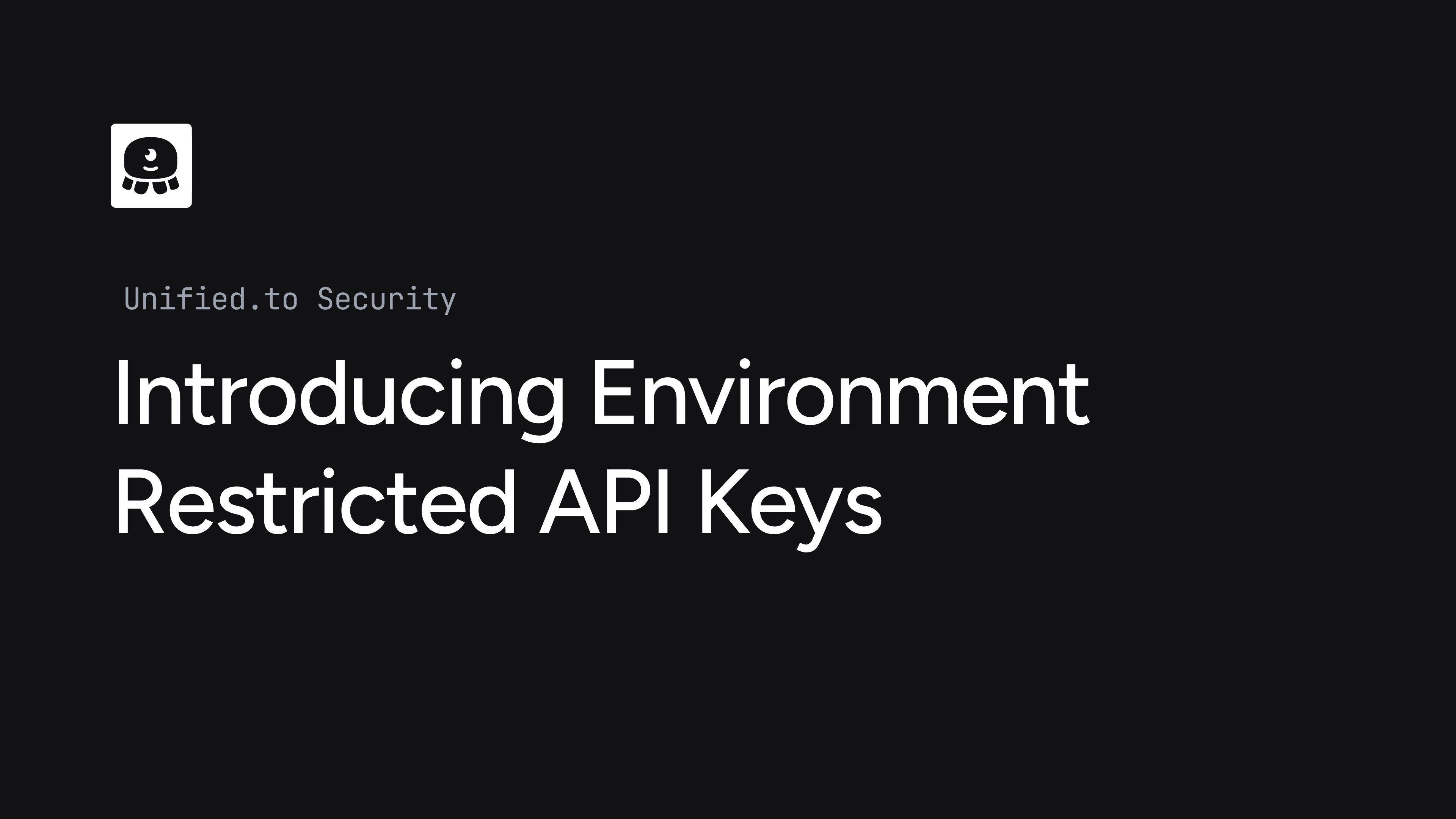Strengthening Our Security Posture with Environment-Restricted API Keys
November 19, 2025

We're introducing API Keys with Environment Restrictions, a direct extension of our least-privilege approach to integrations.
This strengthens our position as the most security-forward platform by giving teams clearer control over how developers access production, staging, and sandbox environments.
This feature came from customer feedback, including teams that needed a simple way to separate production access from non-production access for their developers without creating multiple workspaces or managing keys manually.
Why we built this
Customers told us:
- They wanted a clean way to give certain developers access only to non-production environments.
- They needed tighter control over production access for compliance and internal review.
- They didn't want to maintain multiple workspaces just to separate environments.
- They wanted a straightforward way to prevent accidental data access in their customer's connections on their production environment.
Environment-restricted keys solve that without changing the existing setup.
How it works
- You can optionally assign an API key to a specific environment (production, staging, or sandbox, or any custom environment) when assigning a key to a specific developer.
- Keys only operate within the environment they're scoped to.
- Existing keys remain unchanged unless you choose to apply restrictions.
- This reduces accidental access, limits blast radius, and aligns Unified access with your internal environment structure.
This is an optional feature — you can enable it when you need it.
Our broader security posture
Environment-restricted keys build on the controls we already provide across our platform. Unified is designed to safeguard customer data by default:
- Zero data stored at rest
Unified operates on a passthrough, no-storage architecture. Data is fetched live, transformed, and delivered in real time. Nothing persists on our servers, and detailed logs are not stored.
- Independent compliance
We are SOC 2 Type II certified and compliant with GDPR, CCPA/CPRA, PIPEDA, and HIPAA. The absence of stored customer data reduces audit scope and removes PII persistence risk.
- Encryption and secrets management
All data in transit uses TLS 1.2+. Minimal operational metadata is encrypted at rest with AES-256. OAuth2 credentials and API tokens can be stored in your own AWS Secrets Manager.
- Access controls
Dashboard access can be enforced through SAML-based SSO with your IdP's MFA and conditional-access policies. Role-based permissions and IP allowlisting give teams further control.
- Application security
Unified undergoes annual third-party penetration testing. Containers and infrastructure are continuously scanned, every build goes through SAST, and runtime is covered by DAST.
- Segregated data regions
Customers can select US, EU, or APAC regions. Multi-region isolation ensures credentials and operational metadata stay within the region selected.
You can review all details or request reports through our Trust Center.
Environment-restricted keys extend this foundation, giving teams another layer of control without adding setup overhead. If you need guidance on how to roll this out across your team, reach out — we'll walk you through it.
